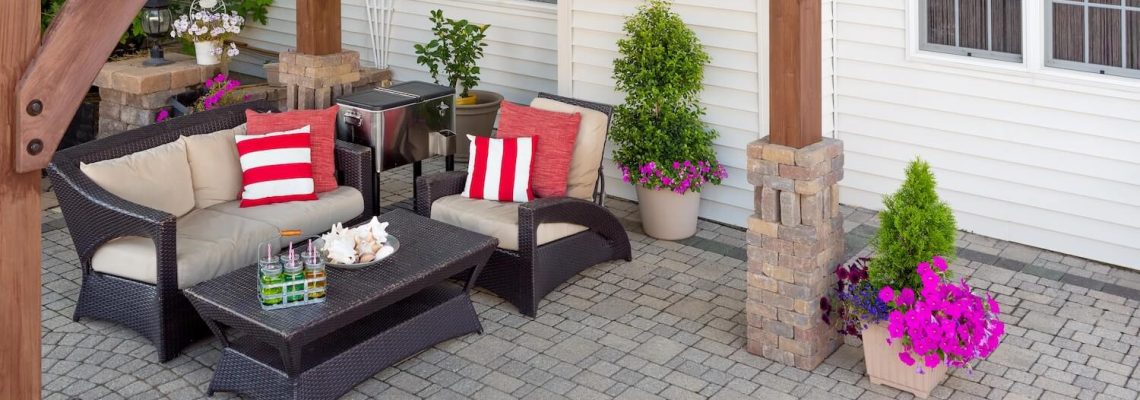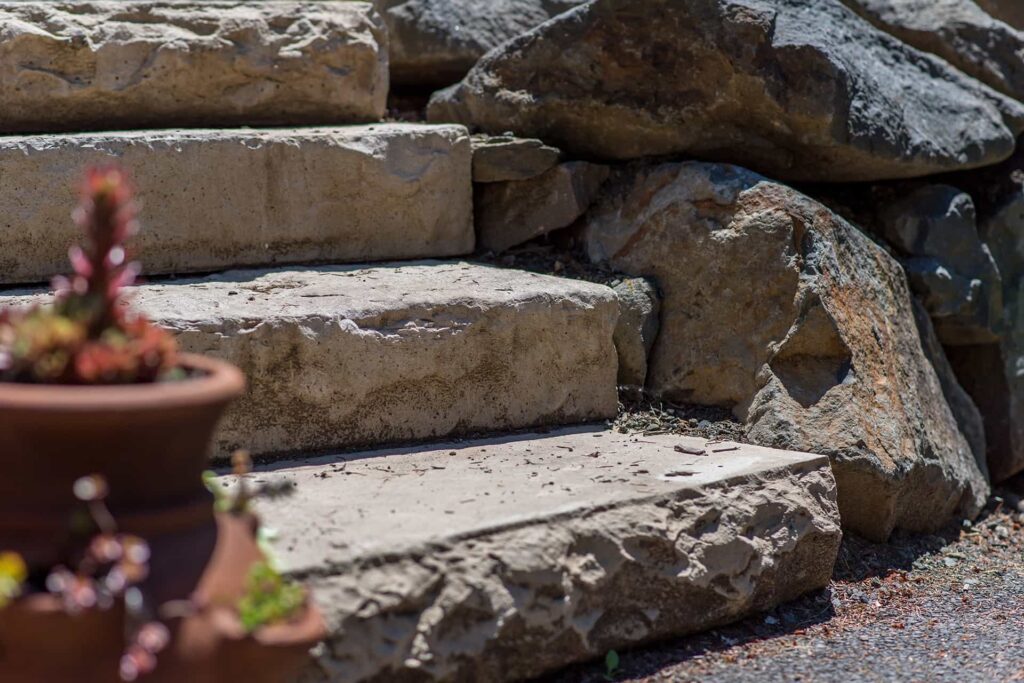Enhancing your outdoor space can significantly elevate your home’s aesthetic appeal, functionality, and value. Among the various options for outdoor improvements, paver systems stand out as a versatile and attractive choice. Pavers offer a durable, customizable solution for patios, driveways, walkways, and more. However, achieving a flawless installation that stands the test of time involves more than selecting the right materials. It requires the expertise and precision of professional installers.
In this comprehensive guide, we will explore why investing in professional paver installation is a smart decision, examining the numerous design benefits and considerations that come with expert craftsmanship.
Understanding Pavers
What Are Pavers?
Pavers are modular units used to create durable and visually appealing surfaces for outdoor areas. They are available in a range of materials, including:
- Concrete Pavers: Made from a mixture of cement, sand, and aggregates, concrete pavers are versatile and can be molded into various shapes and sizes. They are often used for driveways, patios, and walkways due to their durability and cost-effectiveness.
- Brick Pavers: Crafted from clay and fired in kilns, brick pavers offer a classic, timeless look. They are highly durable and can add a sophisticated touch to any outdoor space.
- Natural Stone Pavers: Made from materials such as granite, limestone, and slate, natural stone pavers provide a unique and upscale appearance. Each stone is distinct, adding character and elegance to your outdoor area.
Pavers are known for their flexibility in design, ease of maintenance, and ability to handle heavy traffic. They can be arranged in various patterns and configurations, allowing for creativity in design.
The Importance of Professional Installation
Paver installation is more complex than it may appear at first glance. Professional installers bring a wealth of knowledge and skill to the table, ensuring a high-quality outcome. Here’s a closer look at why professional installation is essential:
1. Expert Design and Planning
A successful paver installation begins with careful planning and design:
- Site Assessment: Professionals start by assessing the site’s conditions, such as soil type, drainage, and slope. This evaluation helps determine the best approach for the installation and ensures that the pavers will perform well in the given environment.
- Design Integration: Professionals work with you to integrate the paver design with your overall landscape and architectural style. They consider factors such as color schemes, patterns, and layout to create a cohesive and aesthetically pleasing look.
- Functional Considerations: They also take into account the intended use of the space, such as traffic patterns and load-bearing requirements, to ensure that the pavers are installed to handle the demands of the area.
2. Precision and Accuracy
Proper installation requires meticulous attention to detail:
- Leveling and Alignment: Professionals use advanced tools like laser levels and string lines to ensure that each paver is precisely placed. This precision prevents issues such as uneven surfaces, which can cause tripping hazards and diminish the overall appearance.
- Cutting and Shaping: Custom cuts and shapes are often required to fit around obstacles or edges. Professionals use specialized saws and equipment to make these cuts accurately, ensuring a seamless fit.
3. Quality of Materials and Techniques
The quality of the installation is directly related to the materials and techniques used:
- Material Selection: Professionals help you choose high-quality materials that are suitable for your specific project. They understand the characteristics of different paver types and can recommend the best options based on your needs and budget.
- Installation Techniques: Proper installation techniques include creating a stable base, setting edge restraints, and using jointing sand. Professionals apply these techniques with expertise, reducing the risk of issues such as shifting or cracking.
4. Efficient Project Management
Managing a paver installation project involves coordinating several tasks:
- Timeline Management: Professionals create a detailed project schedule and adhere to it, ensuring that the work is completed on time. They account for potential delays and manage the workflow to avoid disruptions.
- Cost Management: Accurate cost estimation and budget management are crucial. Professionals provide detailed estimates and help you stay within budget by managing material and labor costs effectively.
5. Durability and Longevity
The longevity of a paver system is heavily influenced by the quality of the installation:
- Base Preparation: A well-prepared base is essential for preventing shifting and settling. Professionals use techniques such as compaction and grading to create a stable foundation that supports the pavers.
- Jointing and Sealing: Proper jointing prevents weed growth and ensures stability. Professionals also apply sealants to protect the pavers from stains, weather damage, and wear.
6. Enhanced Aesthetic Appeal
A professional touch can transform your outdoor space:
- Design Expertise: Professionals bring an eye for design and can create layouts that enhance your home’s architectural style. They use their experience to craft visually appealing patterns and features.
- Attention to Detail: The finishing touches, such as clean cuts and precise jointing, contribute to a polished look. Professionals ensure that every aspect of the installation meets high standards of quality.
The Benefits of Professional Paver Installation
1. Increased Property Value
Investing in professional paver installation can add significant value to your property:
- Curb Appeal: A well-designed paver system enhances the curb appeal of your home, making it more attractive to potential buyers. An inviting outdoor space can be a major selling point.
- Functional Upgrades: Features such as patios, walkways, and driveways not only improve the aesthetic appeal but also add functional value, making the property more desirable.
2. Low Maintenance Requirements
Pavers are known for their low maintenance needs, but proper installation is key:
- Weed and Moss Prevention: Professional installation minimizes the chances of weed growth and moss accumulation, reducing the need for frequent maintenance.
- Easy Cleaning: Pavers are relatively easy to clean, and professionals use techniques that help maintain their appearance over time.
3. Cost-Effectiveness
While professional installation may have a higher initial cost, it can be more cost-effective in the long run:
- Reduced Repair Costs: Proper installation minimizes the risk of issues that require costly repairs or replacements, saving you money over time.
- Long-Term Durability: High-quality installation ensures that your paver system lasts for many years, providing better value for your investment.
4. Customized Solutions
Every outdoor space is unique, and professional installers offer tailored solutions:
- Personalized Designs: Professionals can create custom designs that reflect your style and meet your specific needs. Whether you want a classic look or a modern design, they can deliver a solution that fits your vision.
- Material Selection: They help you choose materials that match your aesthetic preferences and functional requirements, ensuring a cohesive and well-executed project.
5. Peace of Mind
Hiring a professional for paver installation provides peace of mind:
- Expertise and Reliability: You can trust that the job will be done correctly, with attention to detail and adherence to industry standards.
- Warranties and Guarantees: Many professionals offer warranties or guarantees on their work, providing additional protection for your investment and ensuring that any issues are addressed promptly.
Choosing the Right Professional for the Job
1. Research and Recommendations
Finding the right professional begins with thorough research and recommendations:
- Online Reviews and Ratings: Check online reviews and ratings for local paver installation companies to gauge their reputation and customer satisfaction. Websites like Yelp and Google Reviews can provide valuable insights.
- Personal Recommendations: Seek recommendations from friends, family, or neighbors who have had similar work done. Personal referrals can help you find trustworthy and reliable professionals.
2. Verify Credentials
Ensure that the professionals you consider are qualified and reputable:
- Licensing and Insurance: Verify that they are licensed and insured to protect yourself from liability and ensure compliance with local regulations.
- Certifications and Affiliations: Look for certifications or affiliations with industry organizations, which can indicate a commitment to quality and professionalism.
3. Request Detailed Estimates
Obtain and compare detailed estimates from multiple contractors:
- Cost Breakdown: A comprehensive estimate should include a detailed breakdown of material costs, labor, and any additional charges. This helps you understand the full scope of the project and avoid unexpected expenses.
- Scope of Work: Ensure that the estimate covers all aspects of the project, including site preparation, installation, and finishing touches. Clarify any questions or concerns before proceeding.
4. Review Portfolios
Examine the portfolios of potential contractors to assess their work:
- Previous Projects: Look at photos of completed projects to evaluate the quality and style of their work. Pay attention to the level of craftsmanship and the variety of designs they have executed.
- Design Capabilities: Review their ability to handle different design elements and materials. A diverse portfolio indicates versatility and experience.
5. Communicate Your Vision
Clearly communicate your vision and expectations to the professionals:
- Design Preferences: Discuss your design preferences, material choices, and any specific requirements. Provide examples or sketches if possible to help convey your vision.
- Project Timeline: Agree on a timeline for the project and ensure that the professionals can meet your schedule. Discuss any potential delays and how they will be managed.
Conclusion
Professional paver installation is an investment that can dramatically enhance the functionality and beauty of your outdoor spaces. From expert design and precise execution to long-term durability and increased property value, the benefits of hiring a professional installer are substantial. By choosing experienced professionals, you ensure that your paver system not only meets but exceeds your expectations, providing a lasting and beautiful addition to your home.
Investing in professional paver installation is more than just an upgrade; it’s a commitment to quality, longevity, and aesthetic excellence. With expert craftsmanship, your outdoor spaces can be transformed into stunning and functional areas that you will enjoy for years to come. So, elevate your outdoors with confidence, knowing that a professional touch will bring your vision to life and enhance the enjoyment of your outdoor spaces for generations.


